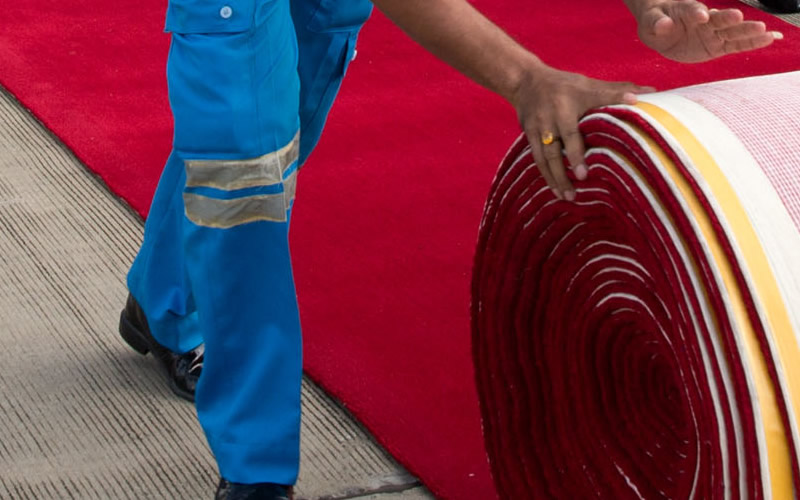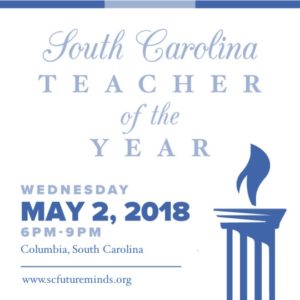
By Caroline Mauldin, special to Statehouse Report | The lights are low as 700 people collectively hold their breath. A drum rolls, followed by the crinkle of an envelope opening. “And the winner is…!” Gasps and applause fill the room as the audience jumps to their feet in pride, and the winner shuffles up to the stage in disbelief.

No, this is not a scene from the Academy Awards in Los Angeles, but one much closer, and more significant to our state: it is South Carolina’s Teacher of the Year gala, held every May in Columbia.
Just over 10 years ago, a group of business leaders recognized a simple fact: if we want to recruit top talent to teach in South Carolina’s public schools, we need to show that we value teachers. It was from this basic idea that South Carolina Future Minds, a statewide nonprofit, was born and exists today. Since then, we have worked with leading companies, like BMW and Bojangles’, to throw a red-carpet celebration honoring some of South Carolina’s community heroes: our public school teachers.
The evening is a highlight for anyone remotely invested in South Carolina’s public schools: for one night, legislators, business executives and civic leaders see teachers as their students do every day: inspirational, committed, passionate role models who are guiding us into the future.
South Carolina’s public school teachers are indeed stewards of our future. By fostering young minds to be critical and creative thinkers, they are preparing an agile workforce that will be able to adjust and thrive in a changing economy. By showing up every day for our children, they are pillars of every community in the state, especially those that are increasingly under-resourced and struggling to survive. And by choosing a career of service and leadership, they are doing more to ensure the state’s prosperity than most—and certainly more than we give them credit for.
South Carolina can and should be proud of our public school educators. We should also be proud of how we celebrate them at the Teacher of the Year gala every May. What we need to work on is how we, as a society, treat them the rest of the year.
A recent study shows that teacher salaries have actually declined in past decades as cost of living has increased. In South Carolina, we’ve seen a 6 percent decrease since 2000, whereas salaries for other college graduates are increasing. Meanwhile, our legislature has set a lower starting salary than those found in neighboring North Carolina and Georgia, and our average teacher salary lags behind the Southeastern average. All this—even as our state experiences steady economic and population growth.
 Of course, salary isn’t everything, particularly for a segment of the workforce that feels called to serve their communities. Most educators will tell you they don’t do it for the money; they do it for the kids.
Of course, salary isn’t everything, particularly for a segment of the workforce that feels called to serve their communities. Most educators will tell you they don’t do it for the money; they do it for the kids.
But from the perspective of supply and demand, consider this: what happens when you start with a statewide teacher shortage (500-plus vacancies in the 2017-18 school year), add a growing student population with increasingly diverse demands, and decrease the number of new teachers entering the profession, as another recent study has shown?
Adam Smith, father of the free market, would point to the invisible hand: increase supply via compensation or other competitive incentives in order to bring equilibrium back. Of course, government-run sectors, like the public education system, do not represent a free market; but that doesn’t mean we can’t learn from its basic principles.
The challenge, of course, is convincing the powers-that-be of the urgency of our teacher crisis, and the bottom line for them is this: we are limiting our collective potential by shortchanging our teachers today.
South Carolina is fortunate to have a strong business community that recognizes the critical role of educators in our society. Many of them will come together next week as we crown the 2019 South Carolina Teacher of the Year. The evening will be unforgettable to all those we honor that night; but, for my part, the work will not be done until South Carolina’s policymakers follow our lead and value teachers all year long.
Caroline P. Mauldin is the executive director of South Carolina Future Minds, a statewide organization investing in public education as a driver of economic and social progress. She is a native of Columbia and currently resides in Charleston.
- Have a comment? Send it to: feedback@statehousereport.com















 We Can Do Better, South Carolina!
We Can Do Better, South Carolina!